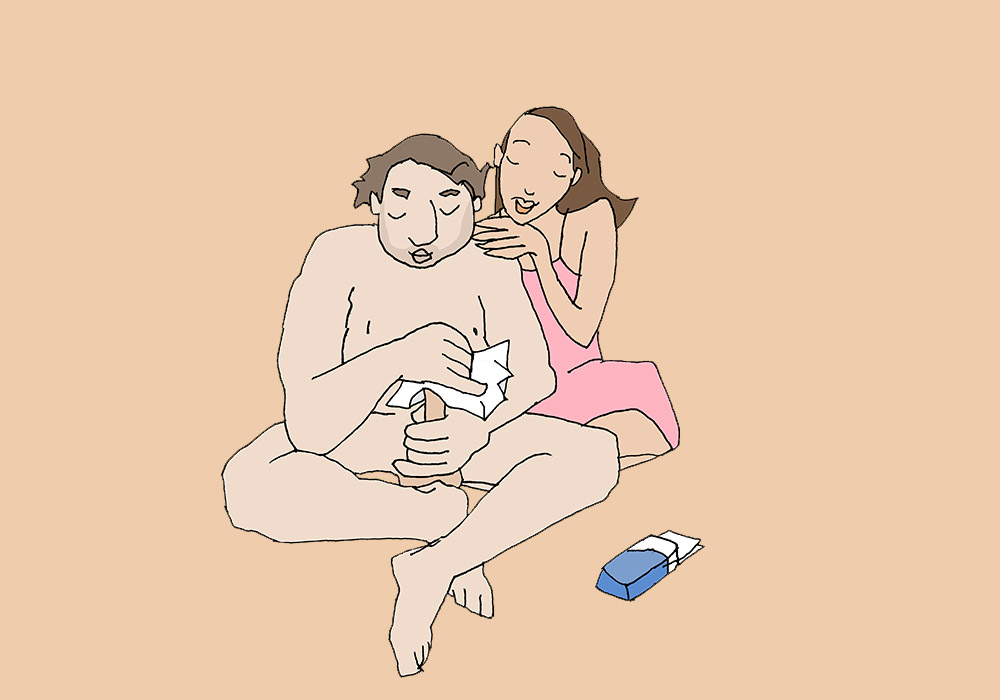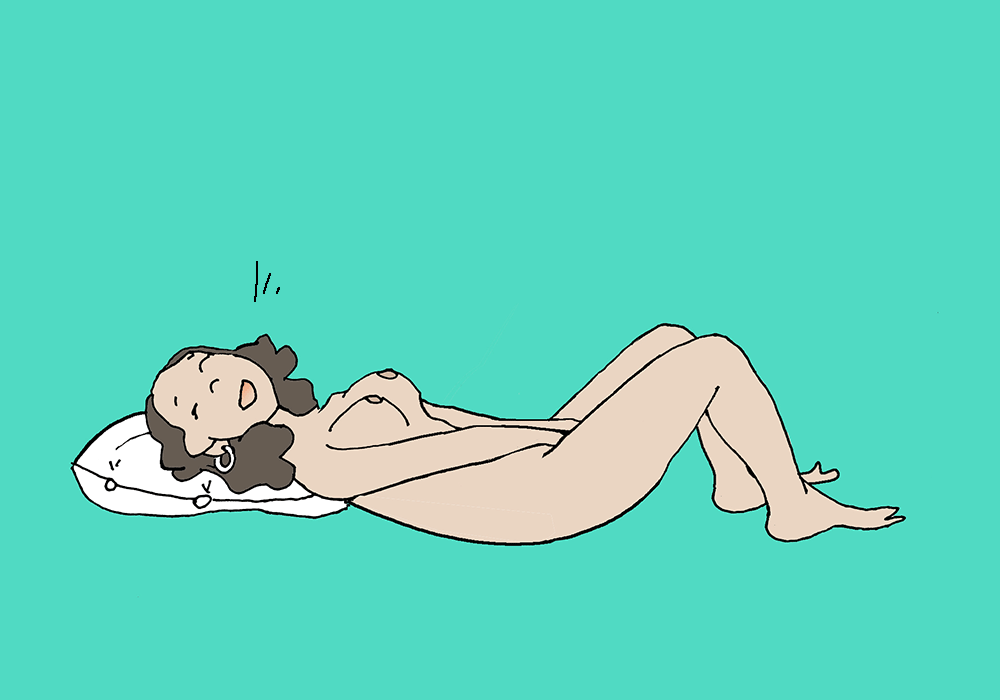An orgasm is a discharge of both physical and emotional tension. It can be experienced in countless different manners, depending on your arousal technique.
What is an orgasmic discharge?
When you have raised your sexual arousal to a certain point, a reflex is triggered that causes muscles in the pelvic region to contract rhythmically – once or several times. Basically, it's a release of physical tension. This is what we call an orgasmic discharge. During this discharge, men may ejaculate. Afterwards, the physical tension and the blood circulation in your genitals decrease. This is a purely physical process that can be experienced in countless different ways.
How does the male ejaculation work?
This is a rather complicated process: Immediately before you ejaculate, sperm is transported to the rear part of the urethra, along with fluid from the epididymis, seminal vesicles and prostate. Both the inner and outer bladder sphincter muscles are closed, so that the ejaculate is sort of in a chamber. At the moment of ejaculation, the external sphincter muscle relaxes and other muscles in the pelvic floor contract involuntarily. This creates the pressure that makes the ejaculate come out of the urethra.
So, what is an orgasm?
Basically, an orgasm is a orgasmic discharge you perceive as highly pleasurable. You could also say that an orgasm includes both a physical and an emotional discharge. It's the climax of a buildup of sexual arousal and emotional arousal. What does an emotional discharge look like? You might giggle or laugh, you might let out a luxurious "Aaaaaaaaaah!" or "Oooooooh!", you might scream. You might even cry.
How does an orgasm feel?
When people are asked about their experience of orgasms, they will describe anything between a purely physical discharge and a highly pleasurable happening. Some describe a rather meaningless throbbing in their genitals. Others experience a pleasant relaxation. Others will experience a pleasant sensation in their genitalia. And yet others will describe ecstatic full-body experiences. In fact, the orgasm you experience today might be totally different from the orgasm you experience tomorrow.
Why are orgasms experienced so differently?
Your experience of an orgasm is, in part, related to the emotional mood of your sexual experience, and, in part, to your arousal technique, i.e. what exactly you stimulated and how you used your body during sex. Two factors highly influence your experience of arousal and orgasm: how much you tense muscles in your pelvis and throughout your body, and how much you move your body. Your breathing is related to both and also plays an important role. Let's look at masturbation: Let's say you hold your body still, tense the muscles in your pelvis and abdomen, breathe shallowly and rub or press your penis or the glans of your clitoris. Your perception of sexual arousal and orgasm will be limited to a small area in your genitals. If, on the other hand, you stimulate larger areas of your genitals while actively playing with your pelvic floor muscles, moving your pelvis and upper body and breathing deeply, you will feel more – thanks to the heightened blood circulation and the active involvement of the entire body.